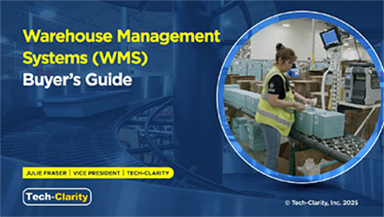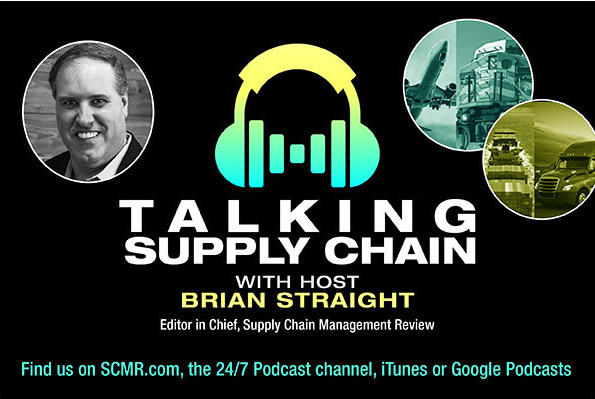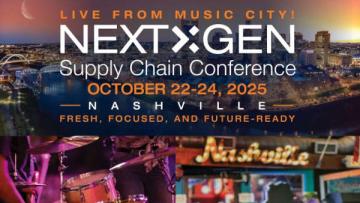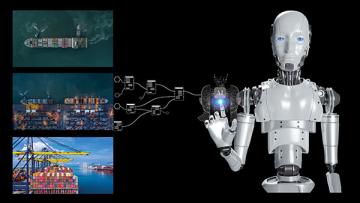Day 2 of the NextGen Supply Chain Conference in Chicago brought together a stable of industry experts, technology vendors and academics to discuss some of the most important current and future technology trends in supply chain. From overall supply chain digitization to blockchain to machine learning (ML), the topics covered were interesting, varied and engaging for conference attendees.
To start the day, Cisco's Jack Allen brought the audience up to speed on the digitization of the supply chain and discussed some of his company's current projects. He emphasized the growing need for cyber security in today's digitized world and openly admitted that it “feels like I'm living in a science fiction novel all of the time” (referring to the fast and often unpredictable pace of change in supply chain right now).
Allen cautioned attendees not to invest in “technology for technology's sake,” and to pay particular attention to key disruptors within their respective industries. He pointed to the recent cyber attack on Maersk as proof of how security issues can bring an entire supply chain to its knees; walked the audience through numerous other advanced technologies; and reinforced the value of the circular economy (i.e., an economic system aimed at minimizing waste and maximizing resources).
Next, Vineet Sinha of Johnson Controls described the complex ecosystems needed to keep buildings up and running, and showed how this “massive task of coordination” was being handled by technology, artificial intelligence (AI), sensors, and the Internet of Things (IoT).
He showed how these systems can help companies solve service problems in just 2-1/2 days (versus 2-1/2 weeks with traditional/manual systems), and urged conference attendees to “put themselves in their customers' shoes” when developing and running facilities.
In a trio of 30-minute business-to-business presentations, Procurant's Eric Peters gave the audience a primer on the use of blockchain in supply chain; Ali Kamil of Wise Systems talked about using ML and autonomous logistics to replace age-old routing and scheduling systems; and Jim Chamberlain of DSC showed how the third-party logistics (3PL) provider is tackling the issue of labor productivity using a labor management system (LMS).
To conclude the two day event, TCU Neeley Business School's Morgan Swink showed attendees how to roadmap their way to digital supply chain maturity. Then, Marcin Fic of Flex Pulse presented a case study illustrating the use of the company's platform to create more intelligent supply chains, and ASCM's Peter Bolstorff discussed the value of accelerating return on digital investments.
In speaking with several conference attendees and exhibitors, this inaugural event clearly met—and in some cases, exceeded—their expectations. It not only attracted a notable lineup of speakers and exhibitors, but also provided unique educational and networking opportunities in an inviting environment at one of Chicago's most famous venues.
SC
MR

More Events
- Uber Freight’s Val Marchevsky to deliver Keynote at NextGen Supply Chain Conference
- Last call for speaker abstracts, award submissions for NextGen Supply Chain Conference
- ProMat 2025 show wrap up
- Nature and supply chain innovation
- Register to speak at the 2025 NextGen Supply Chain Conference
- Call for speakers: 2025 NextGen Supply Chain Conference looking for industry leaders
- More Events
Latest Resources

 Explore
Explore
Topics
Software & Technology News
- Employee versus enterprise AI adoption
- Uber Freight’s Val Marchevsky to deliver Keynote at NextGen Supply Chain Conference
- Trust the team, win the customer
- Breaking barriers in B2B forecast sharing: How sFTP automation is reshaping supply chain data exchange
- A conversation on the life sciences supply chain with DHL’s Jim Saponaro
- Data center growth driving new logistics opportunities
- More Software & Technology
Latest Software & Technology Resources

Subscribe

Supply Chain Management Review delivers the best industry content.

Editors’ Picks




